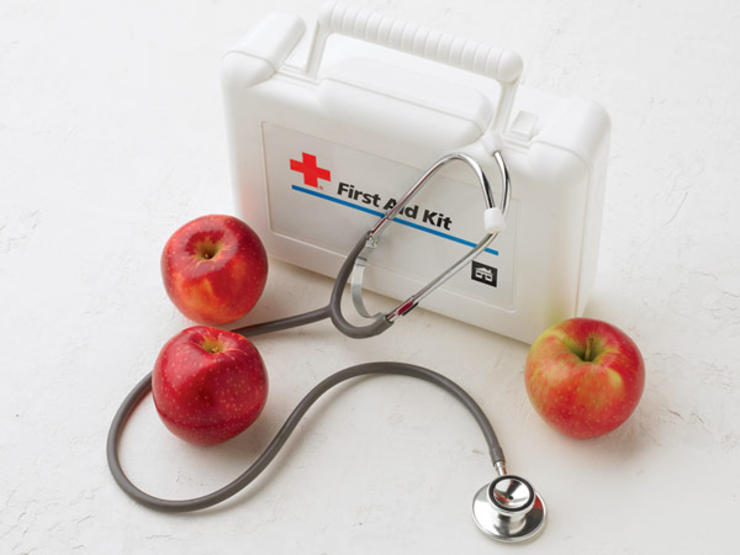Tips to prevent diseases, occurring in both genders, have more impact on women. Here are eight health conditions that disproportionately affect women.

1. Migraine
It is more common in females with a ratio of three to one because of hormonal factors (fluctuations in estrogen levels).
Although increases during the days before menstruation, the good news are that it decreases after menopause.
How to prevent it: Do not take hormonal contraceptives, drink plenty of water and avoid the triggers migraine products (wine, cured cheeses, caffeine, gum and precooked).
2. Smoking
9% of women smoke, and are the ones who start in the snuff them. In addition to the general consequences for all (cardiovascular and pulmonary diseases), the impact of smoking can be more harmful in women: fertility, pregnancy and lactation, as well as being related to some specific cancers of women.
How prevent it: Turn off the cigarette? Quitting smoking is as easy as smoking more because, despite moments of anxiety that can occur outweigh the benefits gained in the short term, both health (heart, lungs …) and the aesthetic plane (skin , hair, mouth …).
3. Anemia
The population group that has the maximum number of people affected is that of non-pregnant women . The very poor diet the pace of life today with menstruation, make it more prone to this decline in the number of red blood cells. Pale skin, brittle nails, hair loss, irritability, fatigue or headaches are the most common symptoms.
How to prevent it: Besides bringing a good diet rich in folic acid and iron (leafy vegetables, eggs, milk, red meat, liver, fish, vegetables), do not forget vitamin C, found in citrus fruits, you It will help iron absorption. Avoid, insofar as possible, antacids, black tea and coffee.
4. Type 2 Diabetes
Hormonal changes they undergo during menopause are responsible for that in middle age more women than men with type 2 diabetes. The lower the level of estrogen, they lose the protective effect of these against cardiovascular risk, making a greater number of complications and more severe compared to males suffering appears.
How to prevent it: Maintain a healthy weight, eating a healthy, varied diet, be physically active and modifies unhealthy habits such as stress, snuff and alcohol, keys.
5. Celiac Disease
Permanent gluten in wheat, barley and rye, intolerance is twice as common in women as in men. Diarrhea, gas, loss of weight and appetite, mood changes or fatigue is the most common symptoms.
How to prevent it: Celiac disease is autoimmune in nature and occurs in genetically predisposed individuals, so you can not prevent it.
6. Osteoporosis
The loss of calcium in bones one in four Spanish postmenopausal occurs. Reducing estrogen is responsible for this silent disease that involves brittleness and fracture appearance, both spontaneous and by minimal trauma.
How to prevent it: Walk 30 minutes a day by the sun, keep a balanced diet rich in calcium and prevents excess alcohol, snuff or coffee.
7. Breast cancer
It is the most common cancer in women, with 25,000 new cases a year and a prevalence of 5 years. However, thanks to early detection and advances in treatment, such as intraoperative radiation therapy, is one of the tumors with better survival rate (healing of almost 90%). Multidisciplinary treatment approach also offers many enhancements for the good of the sick: curing disease, repairing cosmetic breast surgery, avoid unnecessary suffering and care for the quality of life.
How to prevent it: While no two are alike cancers, other risk factors for all: delaying the first pregnancy, lack of deliveries, excessive alcohol consumption and obesity after menopause. Avoid them is a future investment (personal habits represent the highest percentage in the frequency of occurrence of cancer, 50%).
8. Insomnia
From adolescence, women outnumber men in emotional disorders and suffer insomnia more frequently. Concerns, responsibilities and hormonal changes are some of those responsible.
How to prevent it: Take a healthy lifestyle, without alcohol or snuff, do sport and uses relaxation techniques to relieve stress.
